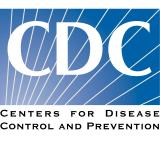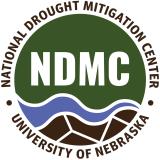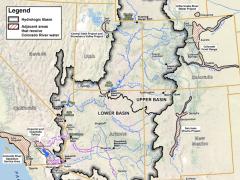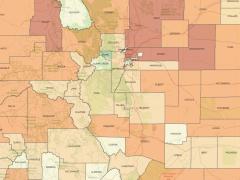NIDIS and Partners Host California Preparing for the Health Effects of Drought Workshop
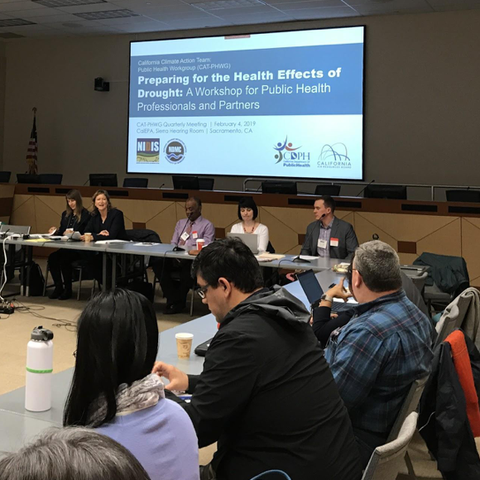 Droughts are not commonly thought of as public health threats. The often-slow onset of drought, compared to other extremes, makes it difficult to identify the links between the physical characteristics of drought and societal impacts. California is no stranger to drought, and the most recent drought brought to the forefront the impacts of drought on health, including decreased water quantity and quality, coccidioidomycosis (Valley fever) outbreaks, increased mortality rates, and adverse mental health outcomes as livelihoods are challenged. In a post-drought coordination workshop, the California-Nevada Drought Early Warning System network identified better preparing public health professionals for drought as a priority.
Droughts are not commonly thought of as public health threats. The often-slow onset of drought, compared to other extremes, makes it difficult to identify the links between the physical characteristics of drought and societal impacts. California is no stranger to drought, and the most recent drought brought to the forefront the impacts of drought on health, including decreased water quantity and quality, coccidioidomycosis (Valley fever) outbreaks, increased mortality rates, and adverse mental health outcomes as livelihoods are challenged. In a post-drought coordination workshop, the California-Nevada Drought Early Warning System network identified better preparing public health professionals for drought as a priority.
On February 4, 2019, the California Department of Public Health (CDPH), NIDIS, the Centers for Disease Control and Prevention (CDC), and the National Drought Mitigation Center (NDMC) co-hosted a workshop on Preparing for the Health Effects of Drought: A Workshop for Public Health Professionals and Partners. This workshop was hosted by the CDPH as part of the California Climate Action Team Public Health Workgroup meeting series and took place at the CalEPA headquarters in Sacramento, CA from 10 am - 4 pm with webinar participation available. The focus of this workshop was on California and is the first of several planned state or regional workshops co-hosted by NIDIS, CDC, and NDMC on the new CDC Resource Guide.
Solange Gould, chief, Health Equity Policy and Planning Unit, Office of Health Equity, CDPH opened the meeting and subsequent presentations and panels explored the linkages between drought and health outcomes. Presenters included the California State Climatologist, University of Nebraska Medical Center, the State Water Resources Control Board, the Department of Water Resources, UC Agricultural Issues Center at UC Merced, UC Riverside, and sections of CDPH including vector borne diseases. Additionally, Dr. Jason Wilken from CDPH gave an overview of the Community Assessment for Public Health Emergency Response (CASPER) methodology used in California, the first ever drought-focused CASPERs developed with CDC.
The afternoon was a facilitated session by NDMC to help participants better understand and use a new CDC National Center for Environmental Health resource guide called Preparing for the Health Effects of Drought: A Resource Guide for Public Health Professionals. Officials from Tulare and Mariposa counties set the stage by sharing their experiences responding to drought health impacts on their communities. Participants were then walked through the modules of the resource guide - Vulnerability Assessments, Communication, Collaborative Education, Drought Data, and Funding Resources - with facilitated discussion and worksheets.
All meeting materials including the agenda, worksheets, presentations, and webinar recording are available here. Next steps include evaluating the workshop and tailoring the workshop for other regions’ unique connections between drought and public health.
For more details, please contact: Amanda Sheffield (amanda.sheffield@noaa.gov).


